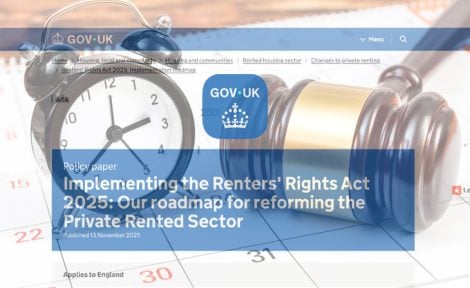CLAIM: Landlords will soon be left in limbo by courts
Without investment in civil courts and tribunals, there will be huge delays in landlords, tenants, and agents accessing justice for property disputes, according to proptech company Reapit.

A leading property industry company has called out the Government’s lack of extra cash for civil courts within its latest judicial system funding announcement, saying evicting courts will struggle to deal with the extra work created by the Renters’ Rights Bill unless they are given more cash.
The comments have been made by Reapit’s Commercial Director Dr Neil Cobbold (main image) who says courts will be faced, following the abolition of Section 21 ‘no-fault’ evictions, with more landlords using Section 8 notices to regain possession of their properties, which will require a court ruling unless the tenant leaves voluntarily.
The Bill also proposes scrapping fixed-term tenancies and requiring all rent increases to be served via a Section 13 notice. These measures are likely to increase demand for court and tribunal time too, says Cobbold.
Government has no idea
Reapit, however, has found, via a Freedom of Information (FOI) request, that the Government has no idea of the scale of the problem and does not even track, for example, how many rent increase cases tribunals there are.
The impact of similar reforms in Scotland suggests that England’s tribunal system could face up to 1.3 million market rent cases annually if all tenants subject to rent increases choose to challenge them.
Even worse delays
And, even before the changes, a government survey found that in 2018, 90% of landlords reported court delays and another 95% of respondents said enforcement by County Court bailiffs took too long.
Reapit says that the government has, though, commissioned a Justice Impact Test and a New Burdens Assessment for the Renters’ Rights Bill, but has yet to release either, leaving key questions unanswered about how it intends to resource the courts and tribunals ahead of the RRB becoming law later this year.
Cobbold says: “Without these assessments, the extra costs may be left out of the Government’s upcoming Spending Review, potentially delaying essential resourcing for councils and tribunals.”









